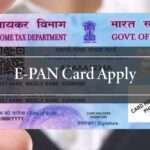India Electoral Bonds
India Electoral Bonds are a unique instrument introduced by the government to facilitate transparent political funding. These bonds allow individuals and companies to donate funds to political parties anonymously, thereby aiming to reduce the influence of black money in elections. Electoral Bonds provide a legal channel for contributions to political parties and aim to enhance accountability and transparency in the electoral process by ensuring the traceability of funds.
What Is Electoral Bonds in India?
Electoral bonds were a mode of funding for political parties in India. Here’s a summary of what they were and their current status-
| Bearer bonds- They functioned like anonymous financial instruments similar to cash. |
| Purchase process- Individuals or organizations could buy them from designated State Bank of India branches with KYC compliance. |
| Donation process- The purchased bonds could be donated to registered political parties within 15 days. |
| Claimed benefits- Supporters argued they brought transparency by using official banking channels and reduced cash donations. |
India’s Supreme Court Scraps Electoral Bonds
On February 15, 2024, a landmark Supreme Court verdict delivered a significant blow to India’s political funding landscape, declaring the Electoral Bond scheme “unconstitutional.” This scheme, introduced in 2017, allowed anonymous donations to political parties through bearer bonds purchased from designated banks. While proponents touted its transparency in using official channels over cash, critics slammed its opacity and violation of the public’s right to know.

Concerns and Controversy
- Opaque Donations- Unlike earlier systems, donors’ identities remained hidden, raising concerns about the undue influence of corporations and foreign entities on parties. This lack of transparency was seen as undermining informed voting and accountability.
- Right to Information- The Court deemed the anonymity clause a violation of the fundamental right to information guaranteed under Article 19 of the Constitution. Citizens argued knowing funding sources was crucial for making informed electoral choices.
- Unlevel Playing Field- Opposition parties contended the scheme favored the ruling party, which received the largest share of anonymous donations. This fueled concerns about an uneven playing field and the potential for bias.
The Verdict and its Fallout
- Unconstitutional- A five-judge bench unanimously declared the scheme unconstitutional, citing the aforementioned reasons. The immediate consequence is the cessation of electoral bond sales and their use for political funding.
- Transparency Push- The Court emphasized the need for transparency in political funding, directing the State Bank of India to disclose identity details of past purchasers and information about redeemed bonds held by parties.
- Uncertain Future- The verdict throws open the question of alternative political funding mechanisms. Possibilities include stricter disclosure norms, state funding, or public contributions. However, the debate on striking a balance between transparency and individual privacy remains complex.
Impact and Implications
- Setback for Ruling Party- The verdict potentially deals a setback to the ruling Bharatiya Janata Party (BJP), which was the largest beneficiary of the scheme.
- Leveling the Playing Field- It could level the playing field for opposition parties, allowing them to compete more effectively.
- Transparency Debate Reopened- The Court’s emphasis on transparency reignites the debate on finding a sustainable and fair system for political funding in India.
While the verdict brings closure to the Electoral Bond chapter, it opens a new one demanding robust discussions and solutions to ensure transparent and accountable political funding in India. Only time will tell what shape this new chapter will take.
Which Bank Issue and Encash Electoral Bonds in India?
It’s important to remember that electoral bonds are no longer valid in India. This means that neither issuing nor encashing them is possible.
The Supreme Court declared the Electoral Bond scheme unconstitutional on February 15, 2024, citing concerns about opacity and violation of the right to information. Therefore, the State Bank of India (SBI), which was previously authorized to issue and encash these bonds, no longer performs these functions.
Who Introduced Electoral Bonds in India?
Electoral Bonds were introduced in India by the Government of India through the Finance Act, of 2017.
Bottomline:-
India’s Electoral Bonds aim to streamline political funding by providing a legal, transparent, and anonymous channel for contributions to political parties, issued and encashed through authorized banks like State Bank of India (SBI).
Also Read










